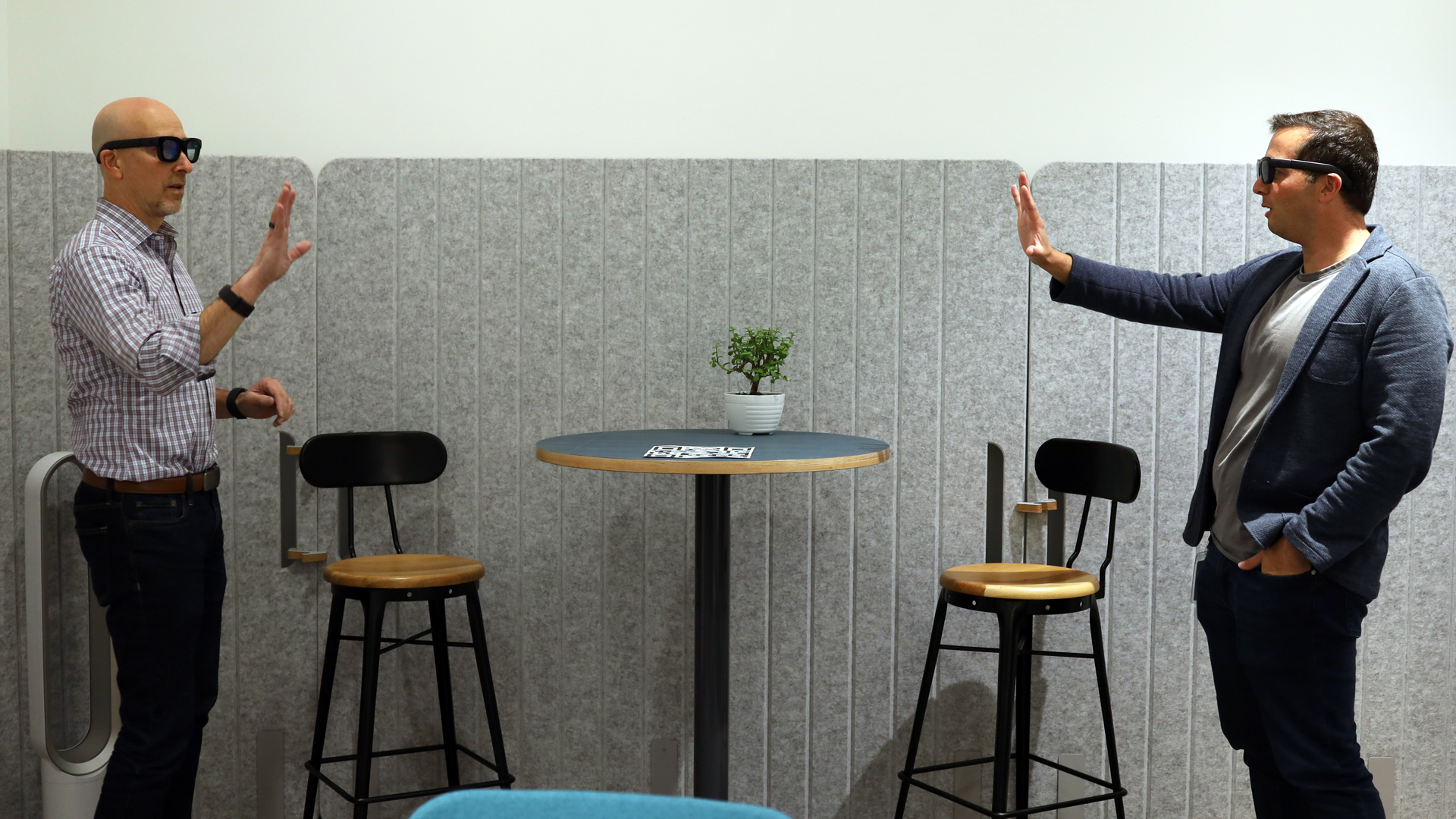The fate of the Samsung XR headset might still be up in the air following recent leaks reporting that its headset has been delayed again, but it appears the South Korean tech giant hasn’t given up on launching some kind of XR gadget. That’s based on a recently published patent that outlines how multiple users could sync their specs with a single smartphone or tablet to enjoy a virtually augmented space together, and how the glasses might be more affordable (but less standalone) then the Meta Orion specs.
Spotted by MySmartPrice, the patent (number 20240355069 titled “Method and System for Grouping Plurality of Devices”) was published last week, and shows how multiple users could connect to a smartphone to play a game of virtual tennis.
It certainly seems to be playing into AR’s strengths of in-person collaboration compared to VR’s more isolating design, and would make sharing a virtual space more seamless. Rather than adding extra layers of signal delays as multiple phones and glasses interact wirelessly – and potential inaccuracies if the phones interpret the same visual data differently – this shared system should be more responsive and accurate.
As with all patents there’s no guarantee that Samsung’s design will ever see the light of day, but it does seemingly clue us into its thinking on how AR glasses should be implemented – in more ways than one.

AR Glasses specs teased
The patent reveals a few other tidbits. For a start, the AR glasses setup outlined in the document (page four, figure three) seems to run some version of Android, suggesting that is how Google is involved in this XR collaboration.
Another detail is that while the specs are outfitted with a display, camera, microphone and other sensors, as well as processing power to render and encode data it receives, the processing is handled by the smartphone – with this then being streamed to the glasses.
This suggests that they’re more like the smartphone-reliant Xreal Air 2 glasses than the more standalone Meta Orion AR glasses. This could be a great thing for accessibility, because less technically capable specs will be cheaper. The downside is it looks like you’ll be locked into Android – or maybe even locked into Samsung smartphones specifically – if you want to use them.
Again we’ll have to wait and see what Samsung announces, but considering some of Samsung’s most notable gadgets are its phones, it wouldn’t be surprising if its AR glasses were more of a smartphone add-on rather than a smartphone alternative.




















+ There are no comments
Add yours